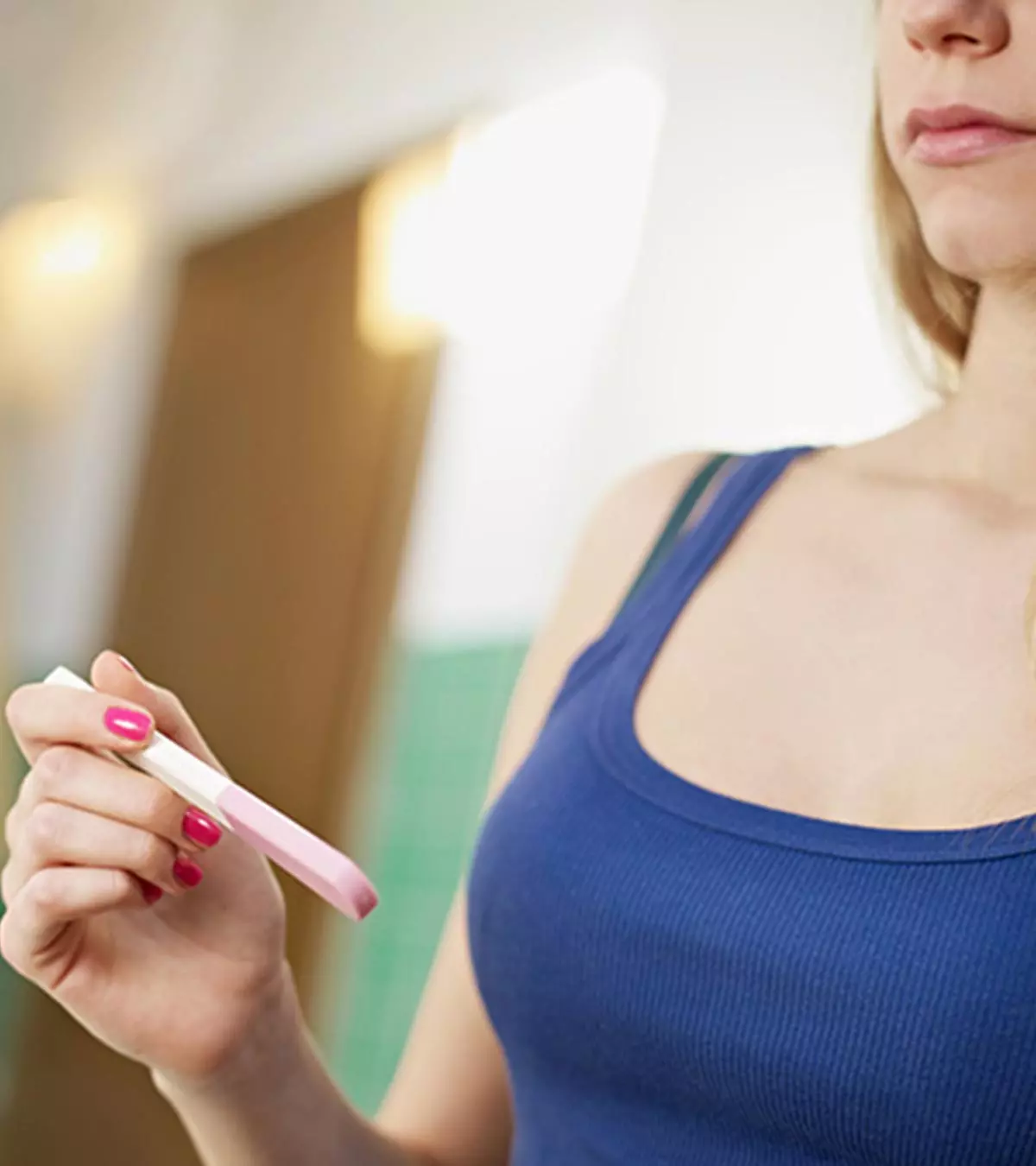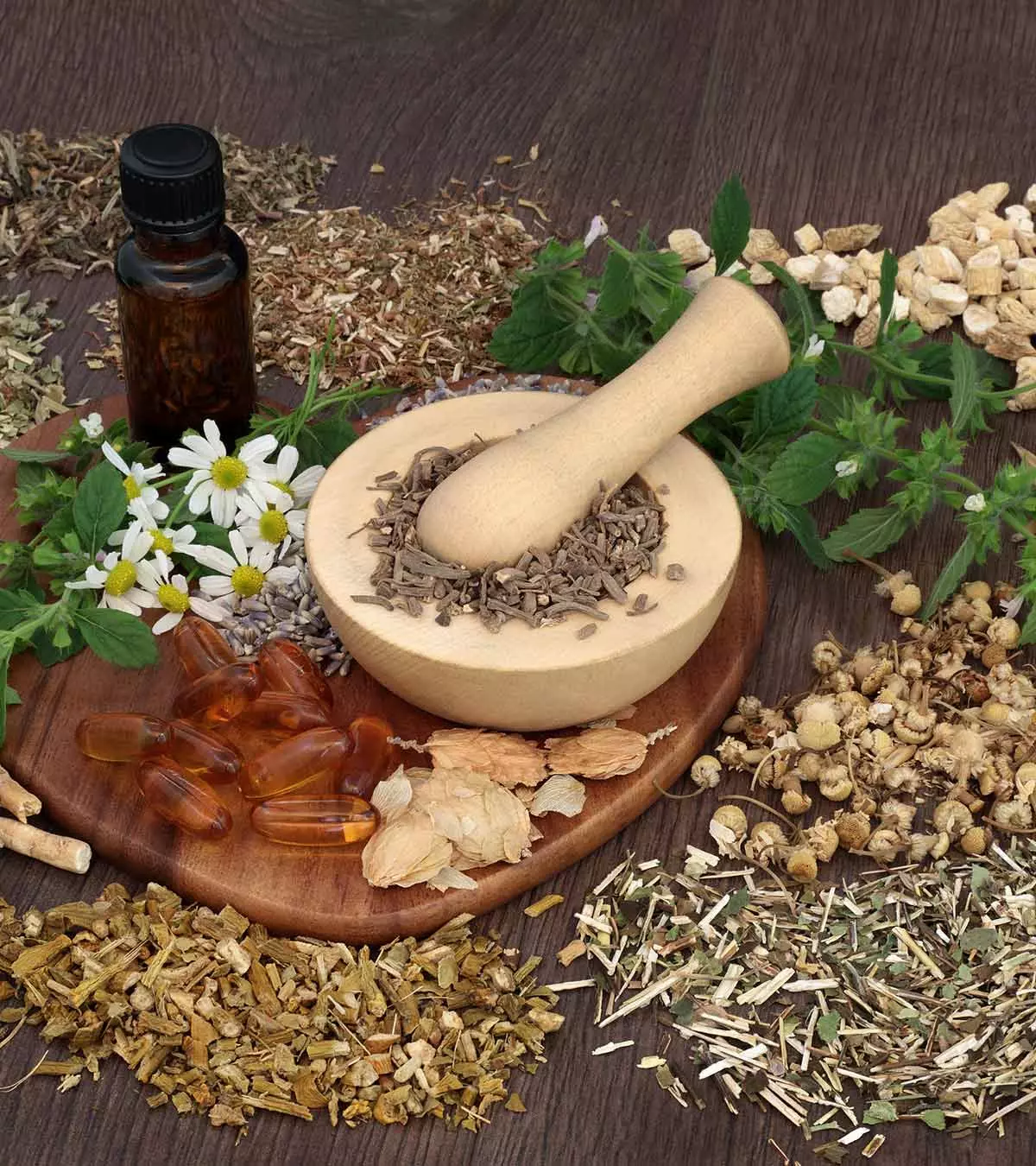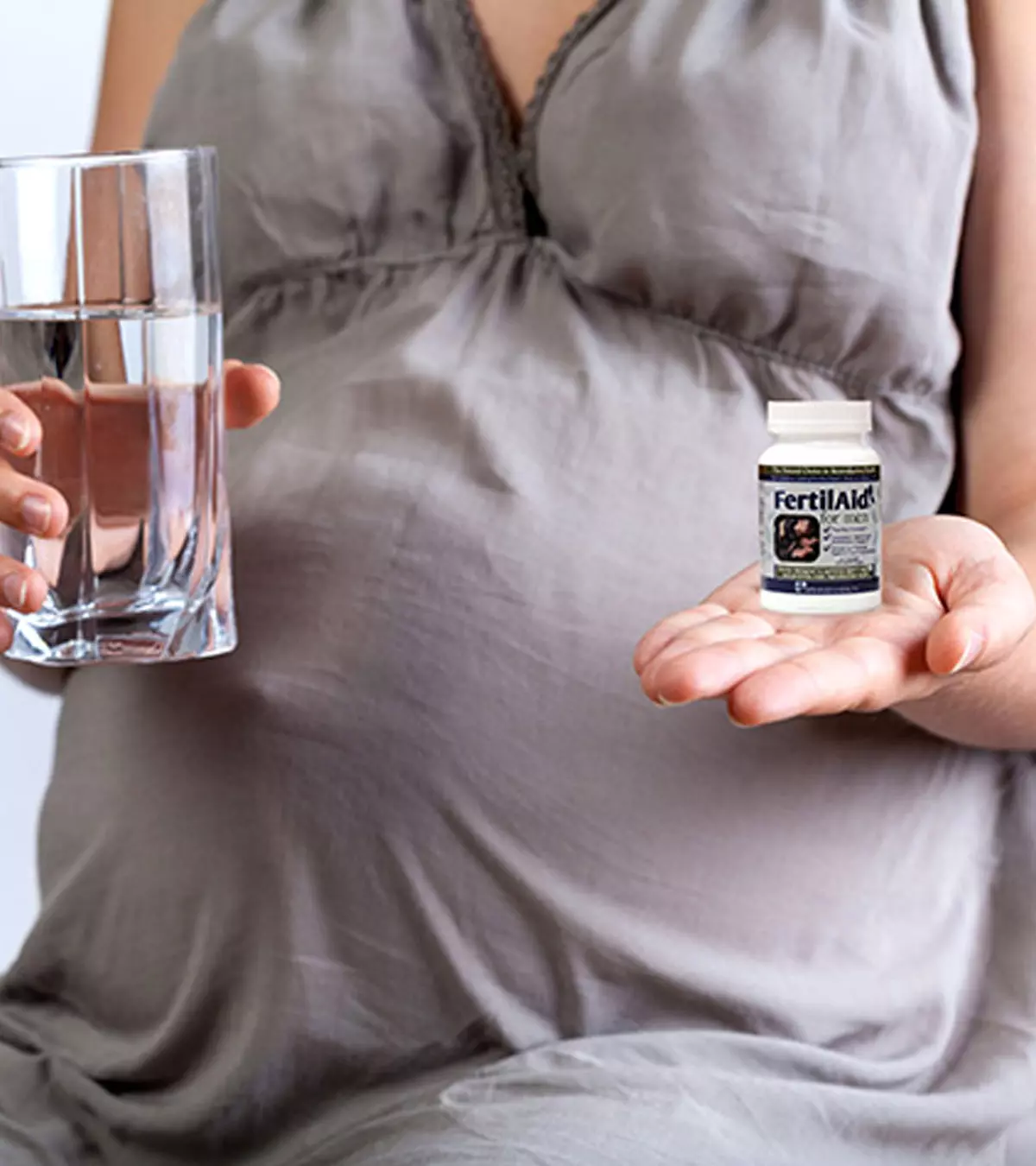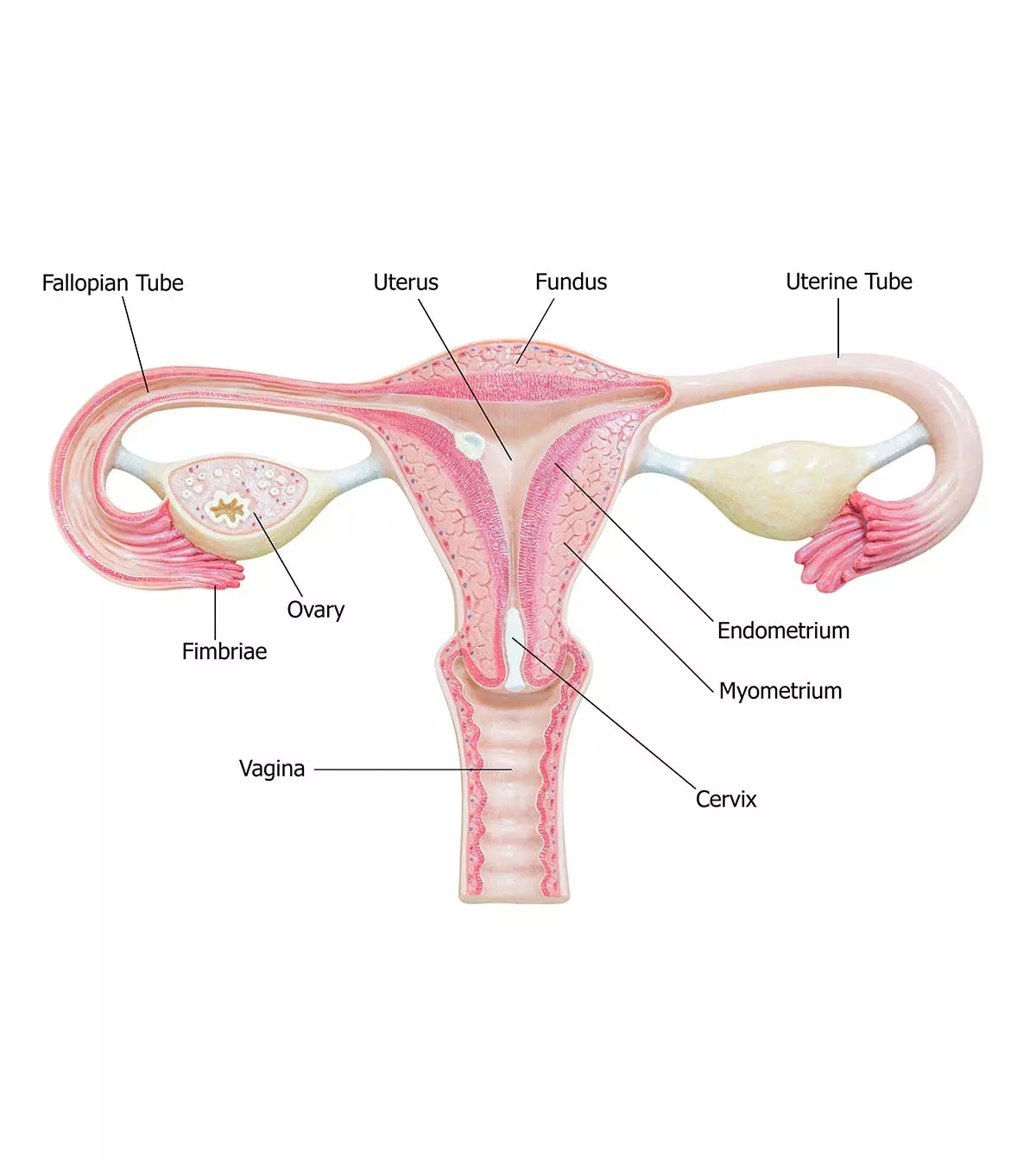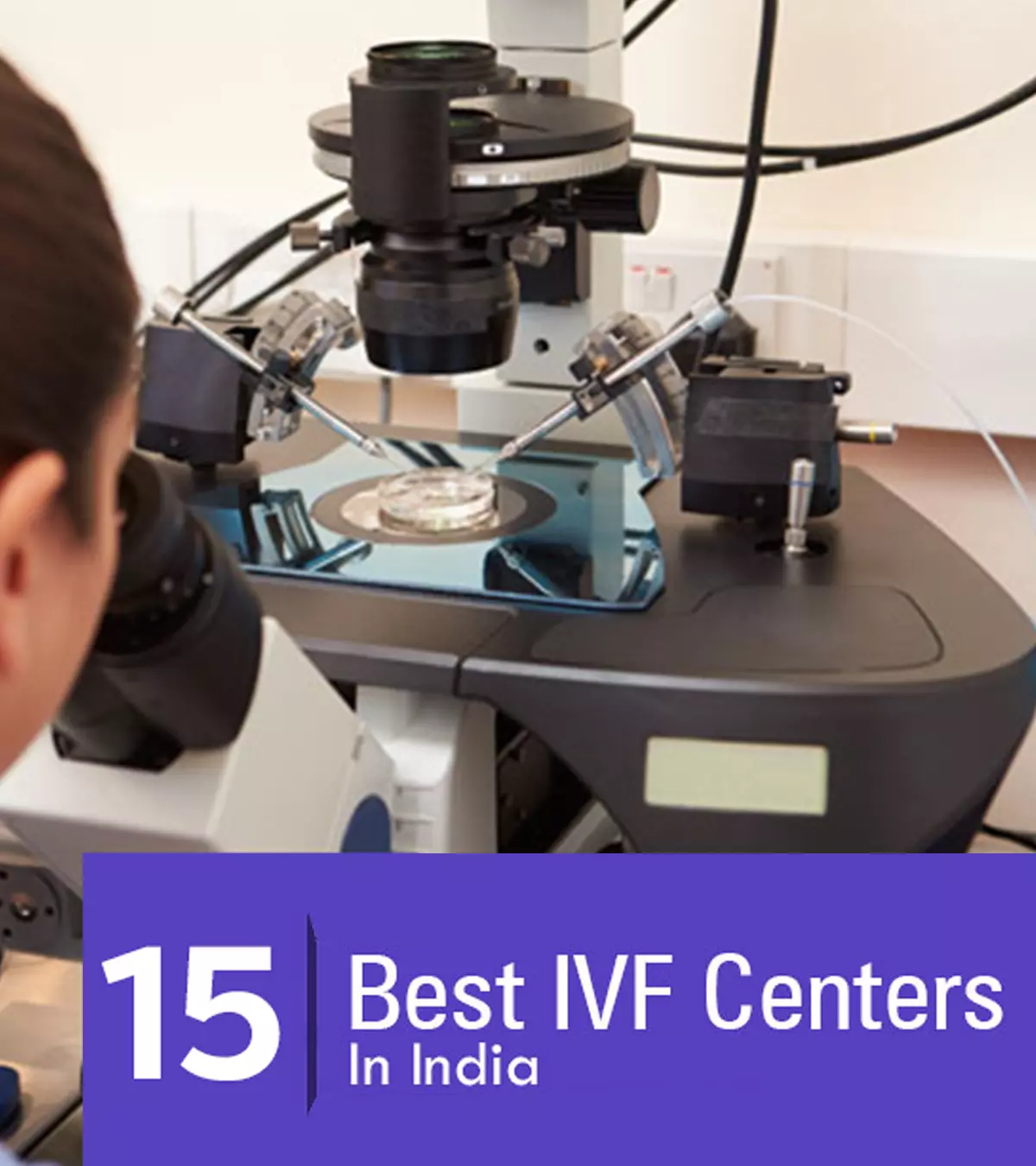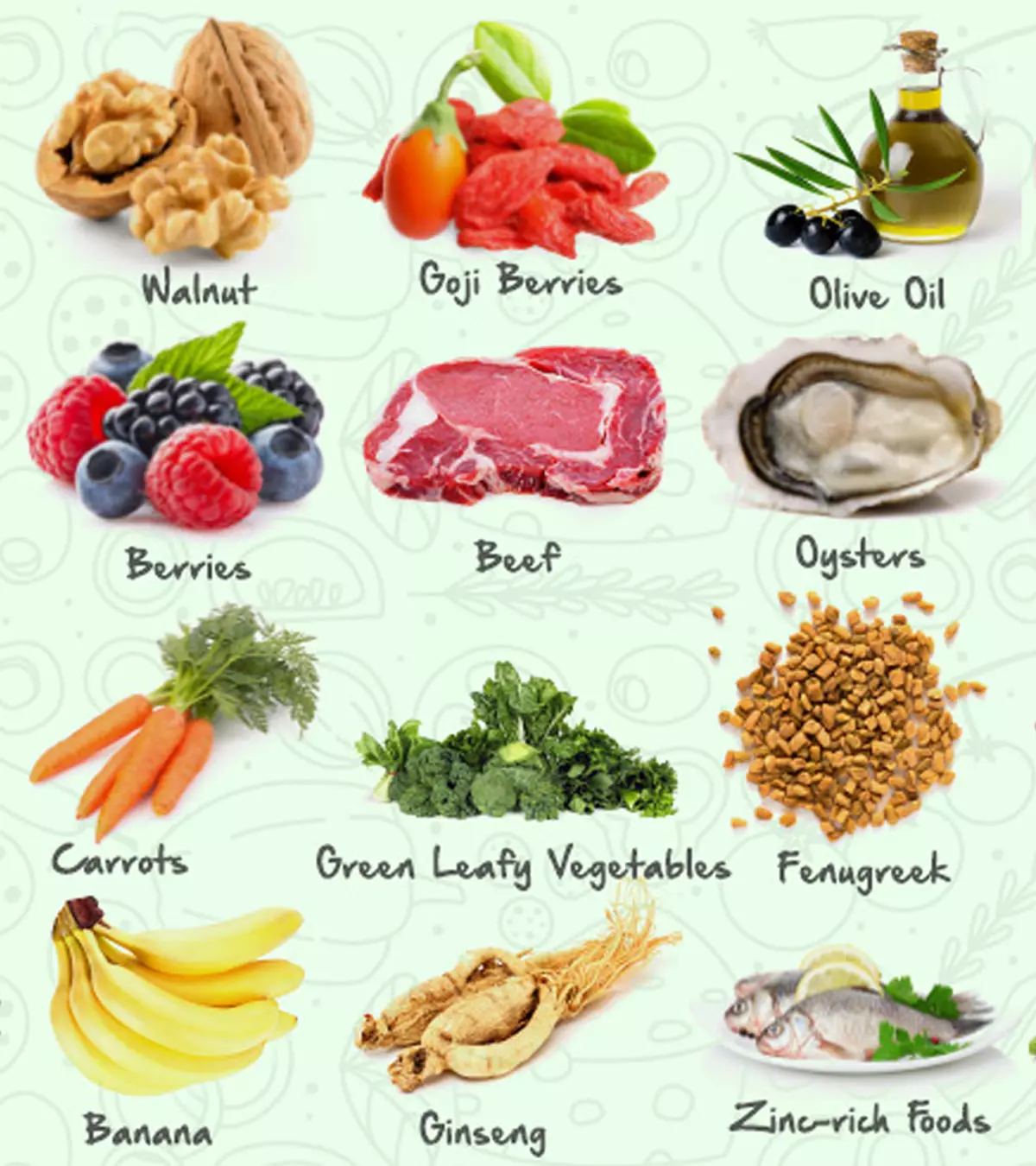
Image: ShutterStock
Low sperm count causing infertility in men is often connected to vitamin or zinc deficiencies, suggesting a few dietary modifications or fertility foods to boost sperm count.

Low sperm counts are the most common cause of infertility in men. According to the World Health Organization (WHO), if a sperm count is above 15 million per milliliter (m/mL), it is regarded as healthy, whereas a count of less than that is deemed abnormal (1).
Read this post to know about some foods that can enhance sperm count and semen volume.
Key Pointers
- A diet that includes antioxidants, essential amino acids, vitamins, phytosterols, and zinc can enhance semen volume, sperm count, and viability.
- Foods with antioxidant and anti-inflammatory properties, such as tomatoes, pumpkin seeds, berries, walnuts, and pomegranates, help improve sperm motility, morphology and testosterone levels in men.
- Folic acid-rich foods, such as lentils and leafy greens, may play a crucial role in increasing male fertility.
- Furthermore, foods such as garlic, eggs, asparagus, and bananas help neutralize free radicals and promote blood circulation and sperm cell production
Super Foods That Increase Sperm Count
Sometimes, the quality of the sperm also has an impact on fertility. Men with a low sperm count can still be fertile if their sperm is in an excellent condition. The sperm is vulnerable to free radical damage, which affects its viability. So, having a good sperm count is of no good if the quality of the sperm is poor.
However, eating a healthy diet rich in antioxidants can improve the semen quality and protect the sperm’s count and viability (2) and in turn, support conception. Listed below are the nutrient-rich foods that increase fertility in men by boosting their sperm count and semen volume:
1. Tomatoes
They are a rich source of lycopene, an antioxidant believed to improve sperm motilityiAbility of sperm to move efficiently to reach an egg to fertilize it , structure, and activity. Research reveals that regular consumption of tomato juice and other antioxidant-rich foods can improve the motility of sperm in infertile men (3).You can also add olive oil to cooked or processed tomatoes for improving the absorption of the antioxidant.
2. Walnuts
Walnuts are rich in omega-3 fatty acids. The daily consumption of 75 grams of walnuts improved the sperm vitality, morphologyiA term used to describe the appearance of the sperm as viewed under a microscope , and motility in men aged between 21 and 35 (4). Walnuts can be added as toppings to any salad or consumed directly as a snack.
3. Pumpkin Seeds
They contain antioxidants, essential amino acidsiOrganic molecules that combine to form proteins , and phytosterolsiCompounds derived from plants that are structurally similar to cholesterol and help lower cholesterol levels in the blood , which enhance fertility in men. Studies found that they can increase serum levels of testosterone, sperm count, motility, and vitality. You can consume raw and organic pumpkin seeds topped on salads, cereals, and smoothies (5).
4. Lentils
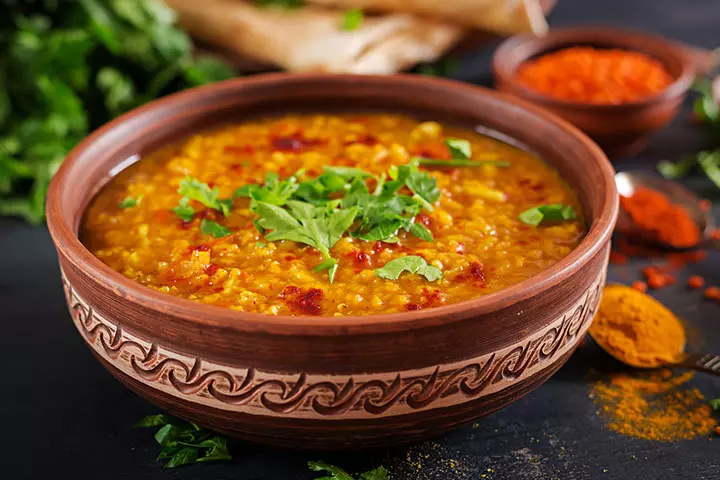
Lentils are rich in folic acid (folate), which is an important nutrient for male fertility (6). Studies also reveal that a lower intake of folic acid increases the likelihood of chromosomal abnormalitiesiAlterations in chromosome number or structure, resulting in genetic disorders in men (7). Consuming lentils every day will improve fertility (8).
5. Berries
All kinds of berries, including blueberries, strawberries, cranberries, and blackberries, contain powerful anti-inflammatory and antioxidants quercetin and resveratrol
. They are known to improve the sperm quality, count and motility (9) (10). You can consume a handful of berries every day, either made into a smoothie or topped with yogurt for a delicious treat.
6. Pomegranates
The superfood is high in antioxidants. Studies show that they improve the testosterone levels and sperm quality, and increase sex drive. One of the studies showed that rats fed with pomegranate juice every day for about eight weeks showed an improvement in sperm cell concentrations (11) (12).
7. Dark Chocolate
It is rich in the amino acid L-arginine, which is known to increase the semen volume and sperm count. It is also high in antioxidants, which work against free radicalsiHighly reactive, unstable molecules that damage cells and increase one’s risk of contracting diseases that may otherwise affect sperm quality. A small bite of dark chocolate every day is sure to boost the sperm count (13).
8. Garlic
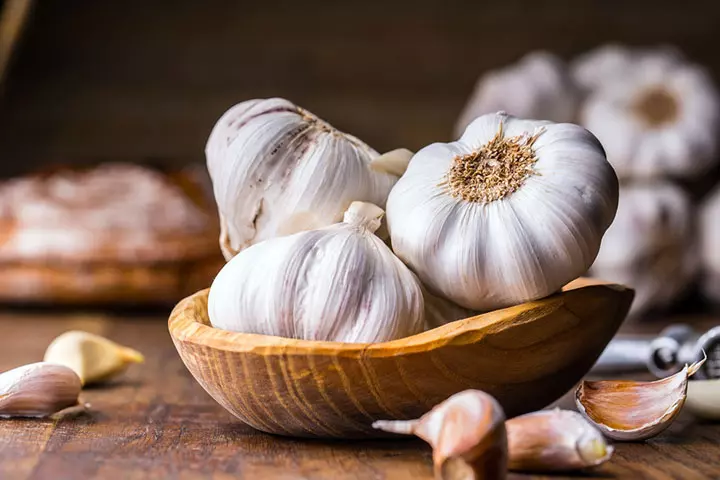
Garlic contains allicin, an active ingredient responsible for stimulating blood circulation. The blood flow thus surges to the sexual organs protecting the sperm from any damage. It also has selenium that improves sperm motility and vitality (14).
9. Eggs
They are a good source of protein and vitamin E, which are known to stimulate the production of sperm cells. They protect the sperms from free radical damage and improve their motility (15).
10. Carrots
Carrots contain beta-carotene which is an antioxidant. They help maintain healthy sperm by neutralizing free radicals. The antioxidants also improve the motility of sperm by helping it swim towards the egg (15) (16).
11. Goji berries
The bright red berries are powerful antioxidants. They fight oxidative damage, maintain optimal temperature levels in the male reproductive organs and improve sperm production. They are also known to improve stamina and mood (17).
12. Ginseng
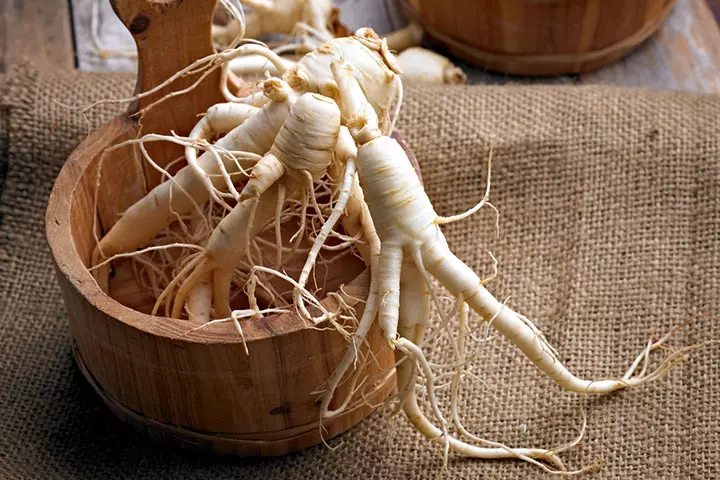
Also known as Ashwagandha, it is an aphrodisiac root used in traditional medicinal practices as one of the many fertility herbs for men. In a study that involved 66 men, the use of Asian ginseng extract was found to increase testosterone levels and sperm count. It is also said to treat erectile dysfunction (18). It can be taken in the form of tea made from the fresh or dried root.
13. Asparagus
Super rich in vitamin C, asparagus protects the sperm from oxidative damage and improves sperm count and motility. And increased sperm count means more sperm swim towards the egg, increasing the chances of reproduction (19).
14. Bananas
Bananas have a rare enzyme called bromelain that regulates sex hormones
. Bananas also contain vitamins A, B1, C, and manganese, which boost the stamina in men and improve their ability to produce sperm (20).
15. Leafy Green Vegetables
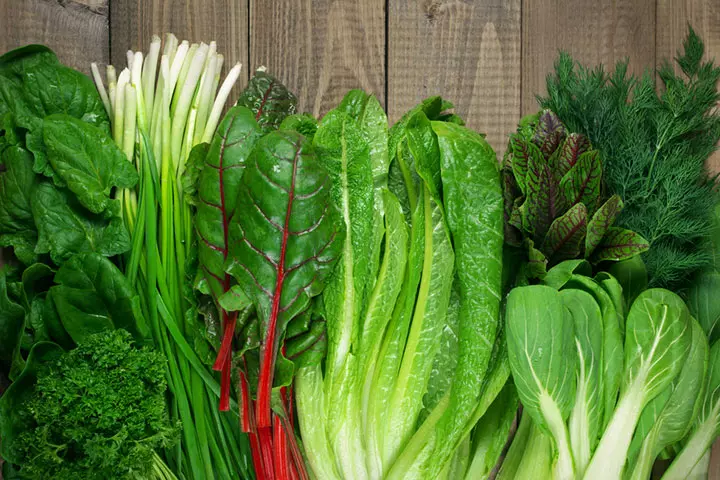
Leafy greens are iron-rich foods which also contain high amounts of folic acid that plays a role in male fertility. Also, studies show that men taking high levels of folic acid every day have fewer chances of sperm abnormalities. Including spinach, broccoli, green beans, and other dark green leafy vegetables can help in improving the sperm count (21).
 Did you know?
Did you know?16. Zinc-rich Foods
Zinc can protect the sperm from free radical damage. It also stimulates libido by preventing testosterone from converting into estrogen. It increases the testosterone levels and improves sperm count and motility (22).
 Quick fact
Quick fact17. Oysters
Oysters are a great source of zinc. They also contain nutrients such as taurine and glycogen that play a role in stimulating the reproductive system. Research findings showed that oyster extract helped in preventing reproductive defects and improved sperm production (23).
18. Beef
Beef is also a rich source of zinc. You can find about 6.31mg zinc in 100gm of lean meat (24). The other sources of zinc include red meat, barley, fish, and shellfish. (25).
19. Fenugreek
It is a traditional remedy for decreased libido and low sperm count. A study found that an innovative patented extract from fenugreek seeds, on administering for 12 weeks, improved the semen and sperm count (26).
20. Olive Oil
Regular consumption of olive oil improves semen and sperm count. It acts by lowering the bad cholesterol levels, thus stimulating the oxygen flow to the testicles, regulating hormonal balance and allowing the formation of healthy sperm (27).
 Experts say
Experts sayThe above list of foods is not a comprehensive one. Including other foods rich in zinc, vitamins A, B12, C and folate promotes healthy sperm production in testes. If you are planning to begin a family, see a dietician and plan your health. A healthy diet keeps your body and mind fresh, and that itself could be an aphrodisiac.
Frequently Asked Questions
1. How to increase sperm count?
A few changes to the daily lifestyle could improve sperm health. Eat a healthy diet rich in fruits and vegetables. Avoid substances that might affect the sperm count. They include plastic, pesticides, harmful paints, and metals. Always wear protective gear when engaging in a sport. Also, if you’re planning to conceive, avoid spas and saunas, as continuous exposure to high temperatures might affect the sperm count (28).
2. What foods to avoid while trying to conceive?
Research suggests that processed foods might decrease sperm health. Processed meat and high-fat milk have been proven to decrease sperm motility and sperm count. It is recommended to consume organic foods since the pesticides in regular agricultural products might reduce sperm concentration. Although soy, a plant-based protein, is a healthy product, its excessive consumption might decrease sperm concentration (29). According to a study, consuming coffee, sweets, sugary drinks, and potatoes may also negatively impact sperm health (30).
3. What juice is good for fertility?
You may consume juices of carrots, green leafy vegetables, bananas, berries, or other fruits and vegetables rich in antioxidants. Juices of foods rich in beta-carotene, lycopene, vitamin C, and B could increase fertility.
Including some fertility foods in the daily diet may combat low sperm count, which is a prime contributor to infertility in males. Antioxidant-packed tomatoes, essential fatty acid-rich walnuts, folate-containing berries, and many other superfoods can improve sperm vitality when consumed regularly. Zinc-containing foods such as oysters, beef, and barley help increase testosterone levels. Including simple foods such as bananas or green leafy vegetables play a pivotal role in boosting male fertility. Consult a dietician for a more comprehensive and personalized approach if you plan to expand your family.
Infographic: Components Of Diet That May Affect Fertility
Reproductive health may be improved through a healthy diet. However, some dietary mistakes may adversely affect male fertility. The infographic below highlights some such dietary factors.
Some thing wrong with infographic shortcode. please verify shortcode syntaxIllustration: Fertility Foods That Increase Your Chance Of Having A Baby

Image: Stable Diffusion/MomJunction Design Team
Are you attempting to conceive? Take a look at this video presenting 7 scientifically supported food tips to aid you on your journey towards conception! Enhance your fertility diet to achieve optimal results.
References
- Niels E. Skakkebaek; (2010); Normal reference ranges for semen quality and their relations to fecundity.
https://www.ncbi.nlm.nih.gov/pmc/articles/PMC3739681/ - Sedigheh Ahmadi et al.; (2016); Antioxidant supplements and semen parameters: An evidence based review.
https://www.ncbi.nlm.nih.gov/pmc/articles/PMC5203687/ - Yu Yamamoto et al.; (2017); The effects of tomato juice on male infertility.
https://pubmed.ncbi.nlm.nih.gov/28049263/ - Wendie A Robbins et al.; (2012); Walnuts improve semen quality in men consuming a Western-style diet: randomized control dietary intervention trial.
https://pubmed.ncbi.nlm.nih.gov/22895856/ - Akang E. N. et al.; (2010); The effect of fluted pumpkin (Telferia occidentalis) seed oil (FPSO) on testis and semen parameters.
https://scihub.org/ABJNA/PDF/2010/4/1-4-697-703.pdf - Foods That Can Affect Fertility.
https://www.eatright.org/health/pregnancy/fertility-and-reproduction/fertility-foods - R. Lambrot et al.; (2013); Low paternal dietary folate alters the mouse sperm epigenome and is associated with negative pregnancy outcomes.
https://www.ncbi.nlm.nih.gov/pmc/articles/PMC3863903/ - 6 foods that boost fertility.
https://www.uclahealth.org/news/article/6-foods-boost-fertility - Jason R. Kovac; (2017); Vitamins and antioxidants in the management of male fertility.
https://www.ncbi.nlm.nih.gov/pmc/articles/PMC5508432/ - Mengyao Zhao et al.; (2015); Evaluation of protective effect of freeze-dried strawberry grape and blueberry powder on acrylamide toxicity in mice.
https://pubmed.ncbi.nlm.nih.gov/25754417/ - Gaffari Turk; (2008); Effects of pomegranate juice consumption on sperm quality, spermatogenic cell density, antioxidant activity and testosterone level in male rats.
https://pubmed.ncbi.nlm.nih.gov/18222572/ - Dogan Atilgan et al.; (2014); Pomegranate ( Punica granatum) juice reduces oxidative injury and improves sperm concentration in a rat model of testicular torsion-detorsion.
https://pubmed.ncbi.nlm.nih.gov/25009604/ - Francesco Visioli and Tory M. Hagen; (2011); Antioxidants to enhance fertility: role of eNOS and potential benefits.
https://www.sciencedirect.com/science/article/abs/pii/S1043661811002088?via%3Dihub - Hazim J. Al – Daraji; (2013); Effect of diluent supplementation with garlic extract on semen quality of cocks during liquid storage.
https://www.ijpbs.net/abstract.php?article=MjY1OA== - Fatemeh Nejatbakhsh M.D. et al.; (2012); Recommended foods for male infertility in Iranian traditional medicine.
https://www.ncbi.nlm.nih.gov/pmc/articles/PMC4169842/ - Piotr Zareba et al.; (2013); Semen quality in relation to antioxidant intake in a healthy male population.
https://pubmed.ncbi.nlm.nih.gov/24094424/ - Recep Dursun et al; (2015); The protective effect of goji berry extract in ischemic reperfusion in testis torsion.
https://www.ncbi.nlm.nih.gov/pmc/articles/PMC4402873/ - Kar Wah Leung and Alice ST Wong; (2013); Ginseng and male reproductive function.
https://www.ncbi.nlm.nih.gov/pmc/articles/PMC3861174/ - Nagendra Singh Chauhan et al.; (2014); A Review on Plants Used for Improvement of Sexual Performance and Virility.
https://www.ncbi.nlm.nih.gov/pmc/articles/PMC4151601 - 3 super foods that increase sperm count.
https://hsfc.org.uk/news/3-super-foods-increase-sperm-count - Adequate folic acid in the diet may be important for both men and women of reproductive age, new UC Berkeley/U.S.D.A. study suggests
https://newsarchive.berkeley.edu/news/media/releases/2001/02/26_diet.html - Myriam C Afeiche et al.; (2014); Meat intake and reproductive parameters among young men.
https://www.ncbi.nlm.nih.gov/pmc/articles/PMC4180710/ - Yoshikazu Matsuda 1 Toshiaki Watanabe; (2003); Effects of oyster extract on the reproductive function of zinc-deficient mice: bioavailability of zinc contained in oyster extract.
https://pubmed.ncbi.nlm.nih.gov/15041778/ - Beef ground 85% lean meat / 15% fat patty cooked broiled (FDC ID: 174032); U.S. Department of Agriculture.
https://fdc.nal.usda.gov/fdc-app.html#/food-details/174032/nutrients - A S Prasad et al; (1996); Zinc status and serum testosterone levels of healthy adults.
https://pubmed.ncbi.nlm.nih.gov/8875519/ - Debasis Bagchi et al.; (2017); A novel protodioscin-enriched fenugreek seed extract (Trigonella foenum-graecum family Fabaceae) improves free testosterone level and sperm profile in healthy volunteers.
https://ffhdj.com/index.php/ffhd/article/view/326 - Thanaa A. F. El-Kholy et al.; (2015); Ameliorating effect of olive oil on fertility of male rats fed on genetically modified soya bean.
https://www.ncbi.nlm.nih.gov/pmc/articles/PMC4576505/ - Optimizing male fertility.
https://www.cedars-sinai.org/blog/optimizing-male-fertility.html - Don’t make the mistake of letting a diet kill sperm.
https://pmc.ncbi.nlm.nih.gov/articles/PMC7291266/ - Kinga Skoracka et al.; (2025); Diet and Nutritional Factors in Male (In) Fertility—Underestimated Factors.
https://www.uchicagomedicine.org/forefront/health-and-wellness-articles/dont-make-the-mistake-of-letting-a-diet-kill-sperm#:~:text=A%20study%20of%20250%20men,ate%20less%20of%20these%20foods - Zinc.
https://ods.od.nih.gov/factsheets/Zinc-HealthProfessional/ - Cigarette Smoking.
https://www.cdc.gov/tobacco/about/?CDC_AAref_Val=https://www.cdc.gov/tobacco/data_statistics/fact_sheets/health_effects/effects_cig_smoking/index.htm
Community Experiences
Join the conversation and become a part of our nurturing community! Share your stories, experiences, and insights to connect with fellow parents.
Read full bio of Dr. Alan B. Patterson
Read full bio of Rebecca Malachi
Read full bio of Swati Patwal
Read full bio of Lorraine Teron









